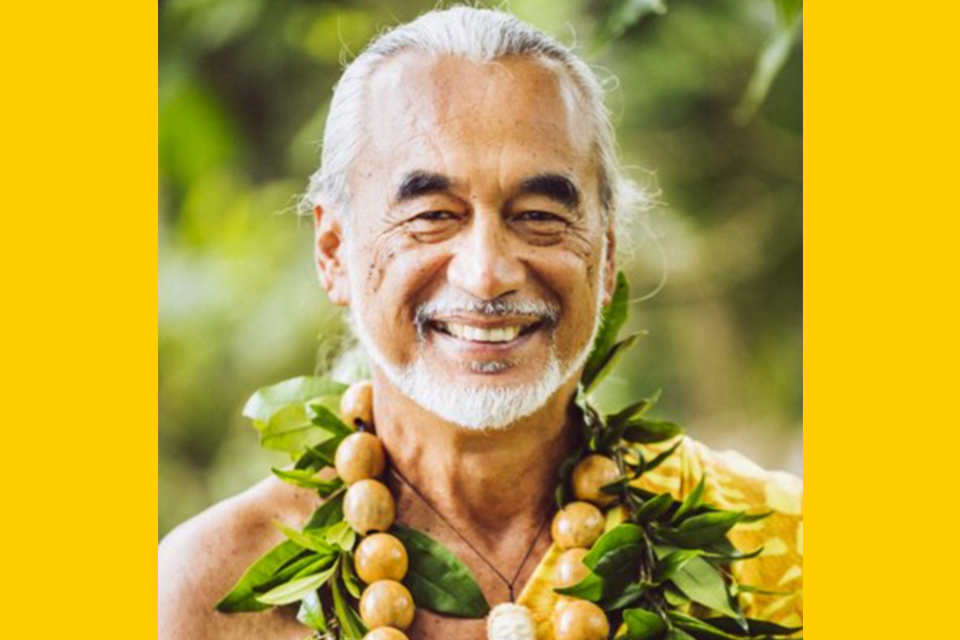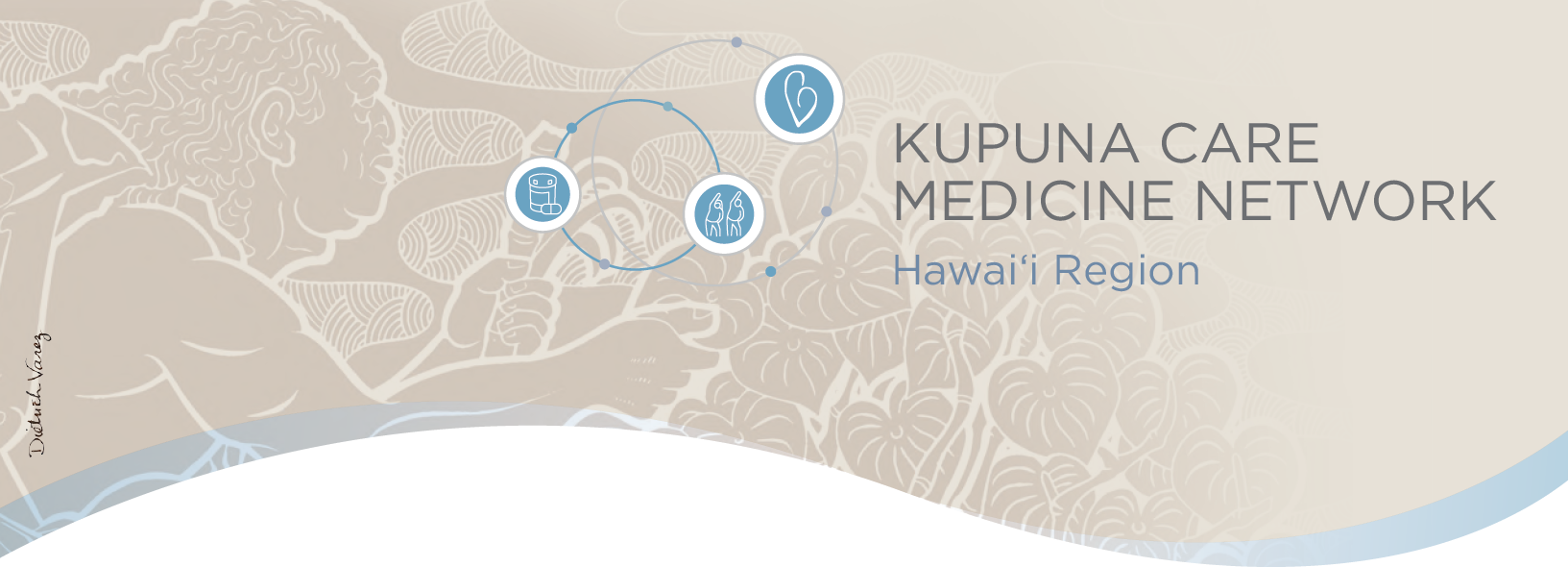Honoring the Life and Work of Kumu Dane Kaohelani Silva
Written By: Nicole Brandt, PharmD, MBA, BCGP, FASCP, professor of practice, sciences, and health outcomes research, and executive director, Peter Lamy Center on Drug Therapy and Aging
Kumu Dane Silva, a Native Hawaiian practitioner and instructor of the Hawaiian healing and martial arts and a community council member for the Elder Care Medicine Network (ECMN), was an inspiring figure who was deeply invested in improving the health and lives of others. Kumu (meaning teacher in Hawaiian) Dane sadly passed in November, but his legacy lives on through his impact on people and his work in the ECMN, a research community led by the School of Pharmacy’s Peter Lamy Center on Drug Therapy and Aging.
The ECMN is a nationwide network, funded through the Patient-Centered Outcomes Research Institute, that aims to understand the medications that older adults use. Our community council, made up of older adults, caregivers, researchers, and pharmacists, is based in three regions of the United States: the Mid-Atlantic, the Midwest, and Hawaii. Our community council members, like Kumu Dane, have spent the last year going into their own communities to hear how older adults and their caregivers feel about their medications.
Do they like their medications? Do they cause many side effects? Do they have trouble administering them? As health care providers, we need to know these answers, but there has never really been a mechanism for older adults and their caregivers to voice their opinions.
One of the many ways Kumu Dane left an impact on the ECMN is his perspective on medicine within the Native Hawaiian community. A former licensed massage therapist and retired chiropractor, he dedicated much of his life providing educational and healing services. He also taught us the term for older adults in Hawaiian, kūpuna, which is important in our outreach of all groups. Like all of us on the council, Kumu Dane had a burning desire to keep our patients – kūpuna in his case – at the heart of our research.
He was a tireless advocate for the Kupuna Strong support group for elders in his community, and he gently and regularly reminded us to think about medications within the bigger context of health. Kumu Dane led the planning for the Kipuka Garden “Farmacy” project to grow medicinal plants and food as part of the Hawaiian Healing Center in his community. He encouraged a focus on disease prevention, and his emails ended with “Wellness is a lifestyle.”
Kumu Dane was an incredibly inspiring and artistic human, and before he left us, he had been working with the Hawaii region council members on reimagining our ECMN brand art in a Hawaiian context. Specifically, he wanted the Hawaii region brand to “illustrate the integration of Western and Hawaiian concepts of health.” It was this vision that guided the work from Darin Igawa, graphic designer at the University of Hawaii at Hilo, who created this visual product.
As Darin explains: “The image is by artist Dietrich Varez and is titled ‘Kahuna Lapaau.’ I think that the combination of the traditional Kahuna Lapaau image and the scientific-abstract Kupuna Care logo reinforces the message of traditional Hawaiian practices and western medicine. The watermarked image at the bottom is of the Laukahi plant. I felt that the earth-tone color palette works well with the logo and projects a subdued and non-threatening look which I think is important when appealing to kupuna.”
We at the ECMN will carry on Kumu Dane’s legacy and work toward our collective goal to create a network for older adults to discuss their medication related concerns and goals of care. Collectively, we can make a difference in how medicines are used and studied in older adults.


